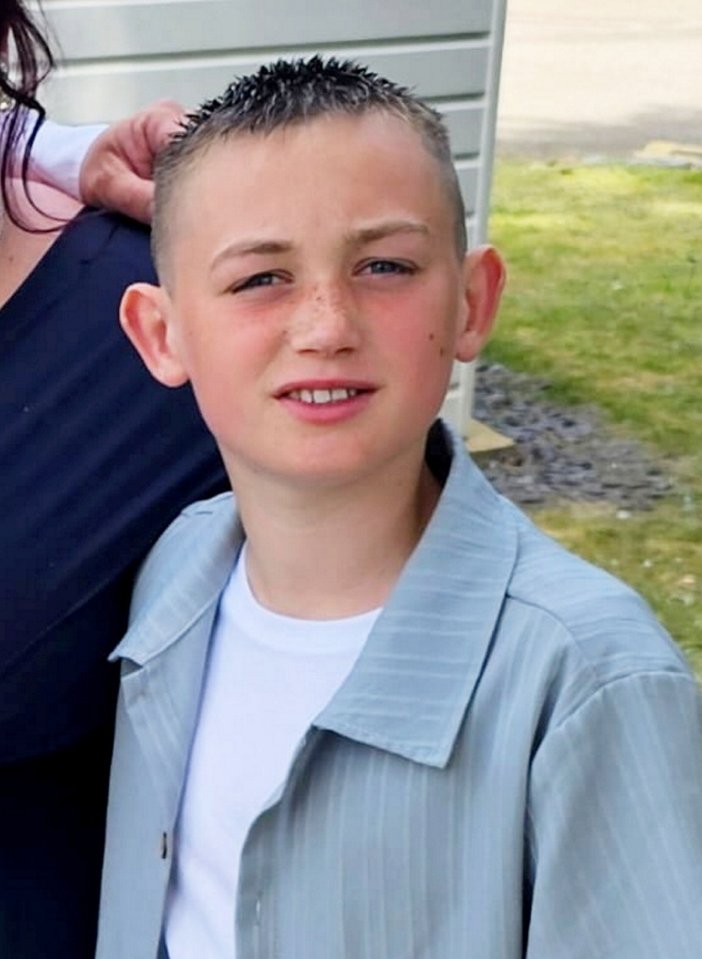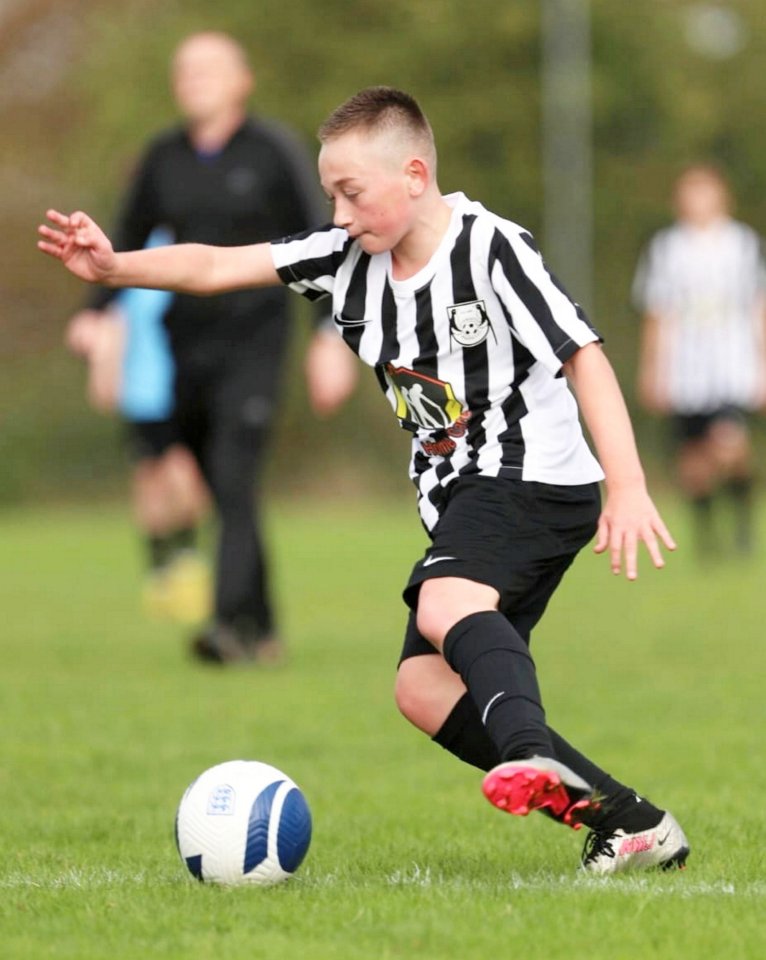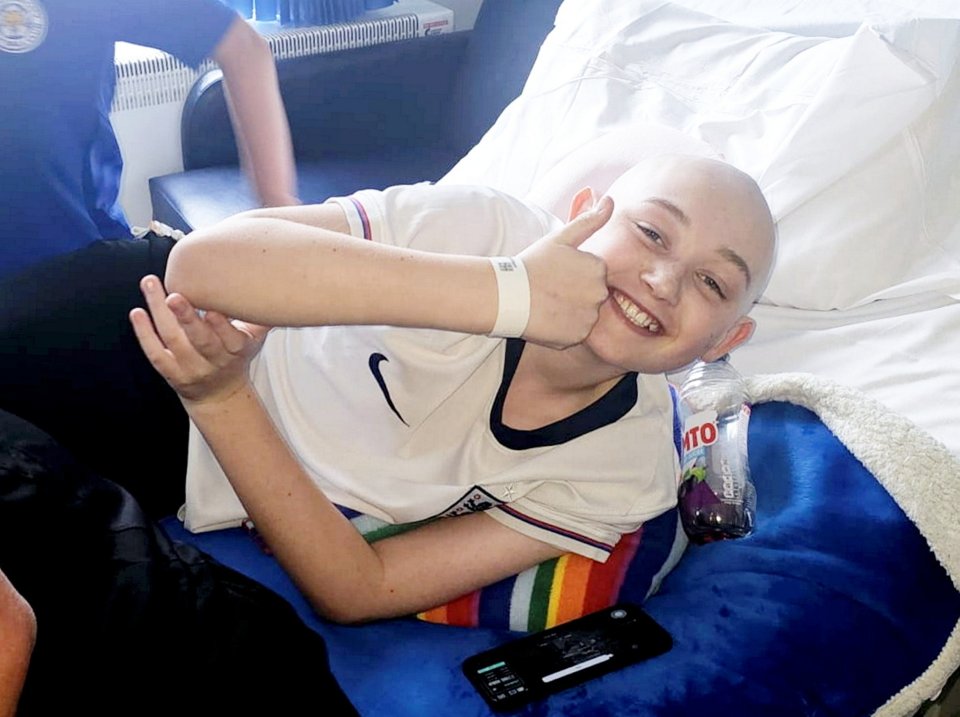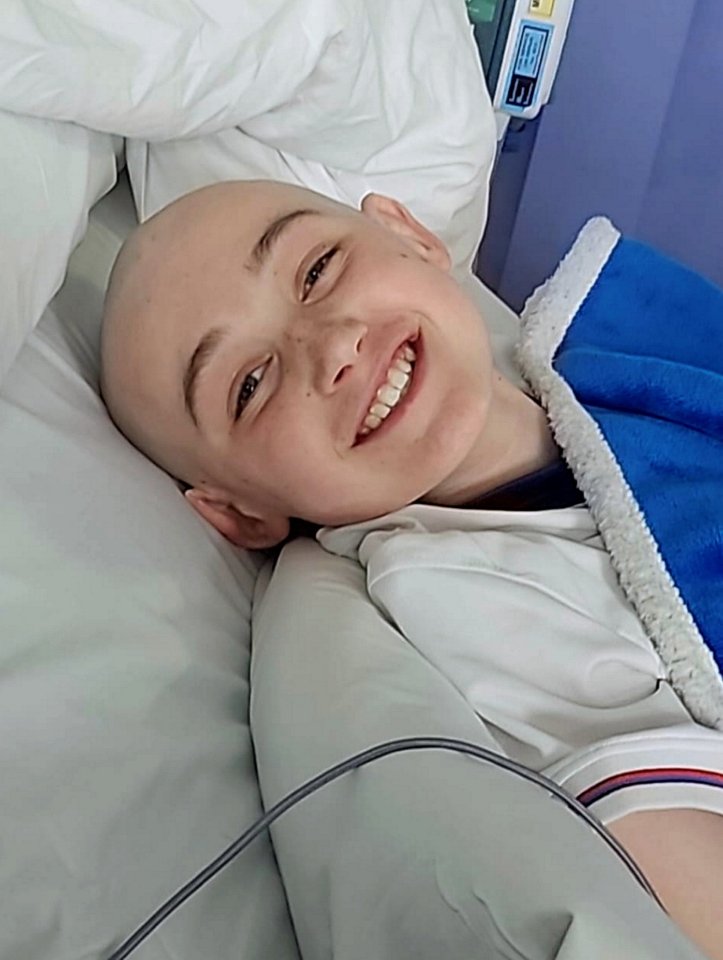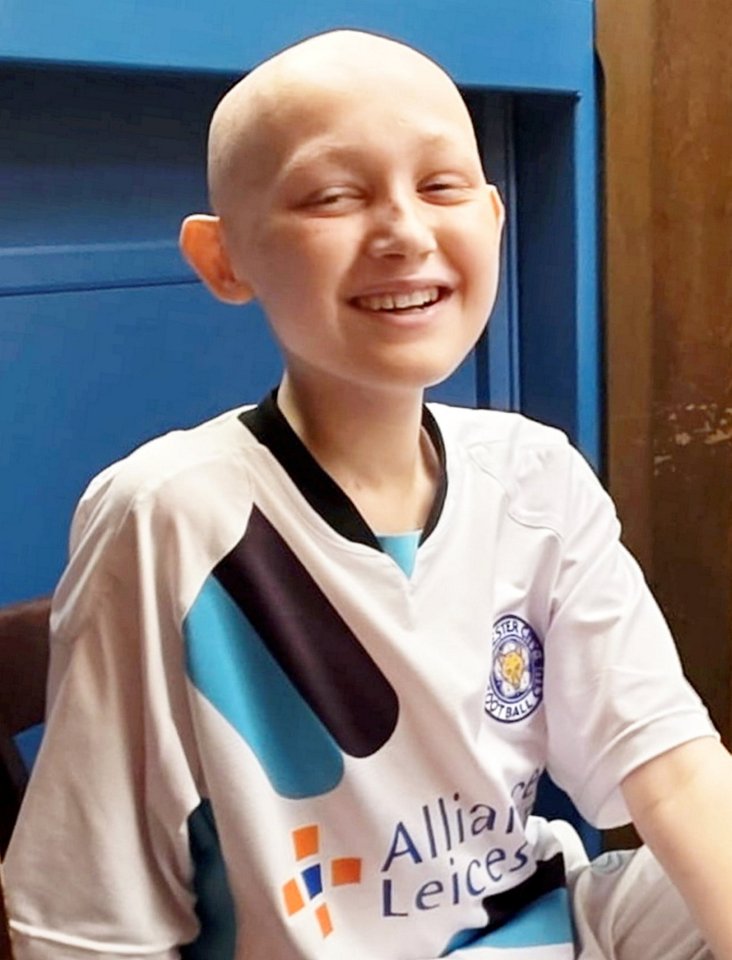WHEN Harrison Thompson began suffering aches and pains last December, he initially put it down to a rugby injury.
But after bungling doctors dismissed his symptoms as “growing pains”, it was later discovered the 13-year-old actually had an aggressive cancer in six parts of his body – and now, NHS treatment is no longer able to help him.
Sports-mad teenager Harrison had been hurt by a tackle during PE at school towards the end of last year, and assumed his aches and pains were related to that.
But when the pain got worse his mum Lindzey, 34, and dad Mitchell, 36, took him to the GP where they were told it was probably a muscular issue.
He was later admitted to A&E at at Leicester Royal Infirmary where doctors believed the problem could be related to growing pains.
Harrison’s pain continued to spread to his spine and knees and became so agonising he was unable to eat, sleep, walk or go to school.
Lindzey pushed for further tests and the family were told on March 18 Harrison had multiple tumours – in his spine, spleen, stomach, liver, lung and kidneys.
Mum-of-three Lindzey, of Leicester, said: “It started when Harrison had a rugby accident at school where he was knocked down.
“He said it went black for a bit but he was ok and within about ten minutes he went a bit sick and dizzy.
“We got him checked out and he had a concussion, he had quite a significant headache.
“But then a week later he said his back was really hurting, ever since the rugby incident.
“The GP thought it was muscular and told us to continue with the paracetamol.
“It was getting worse and he couldn’t sleep at night, so we took him to A&E. They thought it was a urine infection and also said it might be growing pains.
“They let us take him home and it just got worse, he was getting a lot of pain in his knee and lower back and couldn’t play football or rugby anymore.
“The pain got gradually worse to the point he wasn’t able to eat, sleep, sit down, go to school.
“We knew something wasn’t right and this was four months in.”
‘He was screaming out in pain’
Lindzey said they were back and forth to the GP until Harrison was eventually sent for an MRI – but it was a three-month waiting list.
She continued: “I couldn’t go to work because he was in that much pain. He couldn’t manage and was screaming out in pain.”
On March 16, Lindzey said she pleaded with doctors for X-rays and an MRI, and two days later the family were told Harrison had “a lot of tumours throughout his body”.
Harrison was diagnosed with an undifferentiated high grade epitheliod malignancy of uncertain histiogenesis.
He was taken to a cancer ward at Nottingham’s Queen Elizabeth Medical Centre to begin treatment, where he’s since undergone four gruelling rounds of chemotherapy and two rounds of radiotherapy – which have so far failed, on the whole, to shrink the tumours.
On August 14, scan results showed the tumour on his spine had come back bigger than ever.
What is epitheliod malignancy of uncertain histiogenesis?
AN epithelioid malignancy of uncertain histogenesis refers to a type of epithelioid sarcoma – a rare type of cancer that starts as a growth of cells in the soft tissue.
The “uncertain histogenesis” means its precise cell of origin cannot be determined.
Epithelioid sarcomas typically present as a slow-growing, painless lump or swelling under the skin, most commonly in the hands, arms, feet, or legs.
In some cases, the lump can break open and form an ulcer on the skin surface.
There are an average of 19 cases of epithelioid sarcoma diagnosed every year in England.
Treatment primarily involves surgical removal of the tumor with wide margins to prevent recurrence, often followed by radiation therapy to destroy any remaining cancer cells.
The disease has a generally poor prognosis, but prompt diagnosis and treatment can greatly improve prognosis.
The family has since lodged a complaint with University Hospitals of Leicester NHS Trust to investigate if medics could have acted sooner.
Lindzey, who works as a care home manager, said: “I raised concerns to the Trust due to the length of time it took to diagnose him and how many times he was turned away.
“If it wasn’t for me pleading for further investigation, they would have continued to dismiss it.”
Harrison finished five days of radiotherapy on August 21, and his family are now looking at second opinions.
This means raising money to fund potentially life-saving treatment abroad not currently available on the NHS.
Lindzey said: “They’re on about stopping the treatment as they don’t believe the chemotherapy is working.
“We’re looking at Germany, USA or Japan for alternative treatments.
“The fundraising was for some secondary options, but we didn’t realise how fast it’d have to be.
“We also want the money to go towards the ward that helped Harrison and cancer charities.
“The generosity has been amazing so far, it’s really restored my faith in humanity.”
Gang Xu, deputy medical director at the University Hospitals of Leicester NHS Trust, said: “We take any concerns about care incredibly seriously.
“Our Patient Advice and Liaison Service is currently investigating and responding to the family, and will work to address any questions they may have.”
Anyone who wishes to donate can click here.


